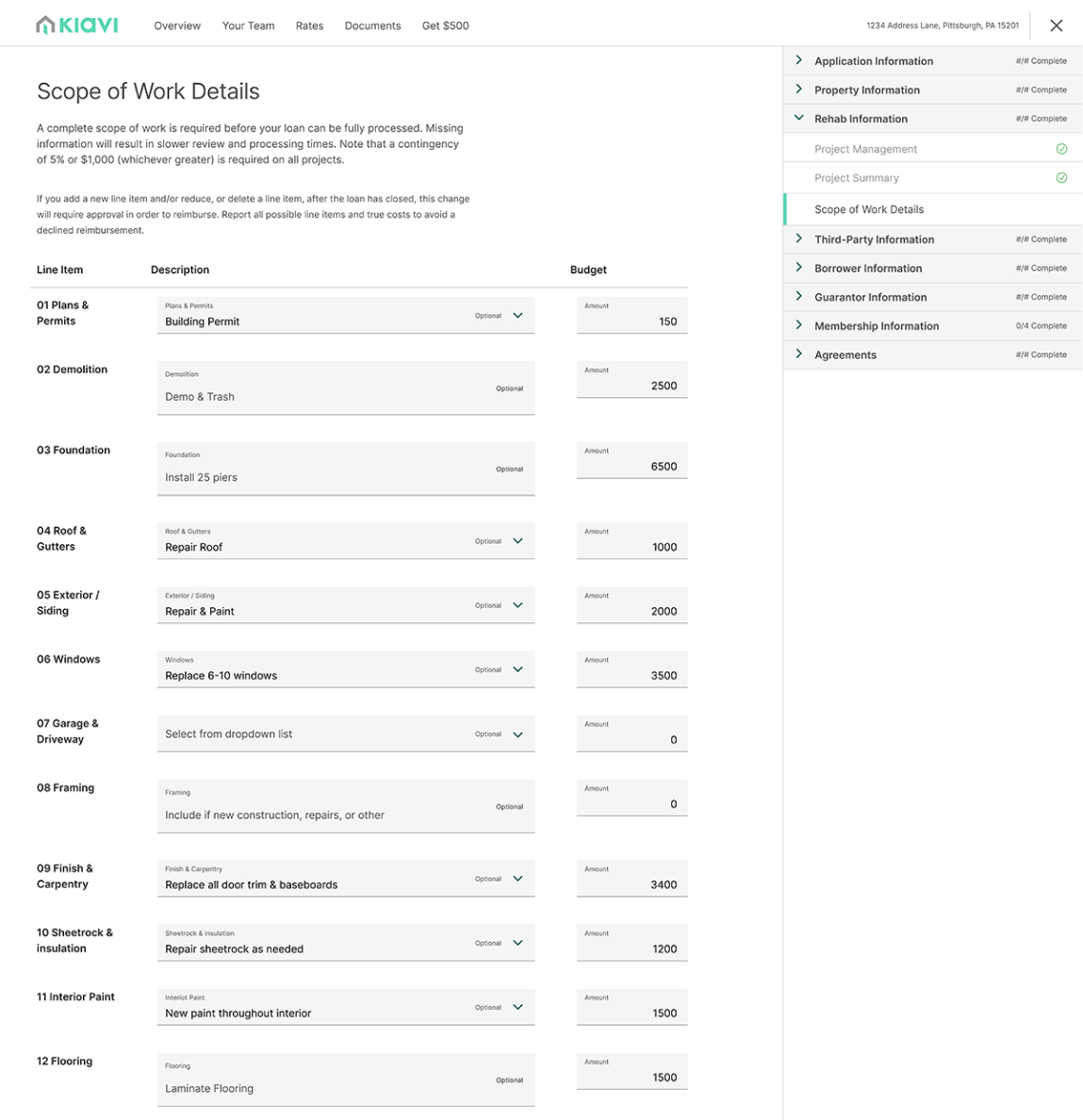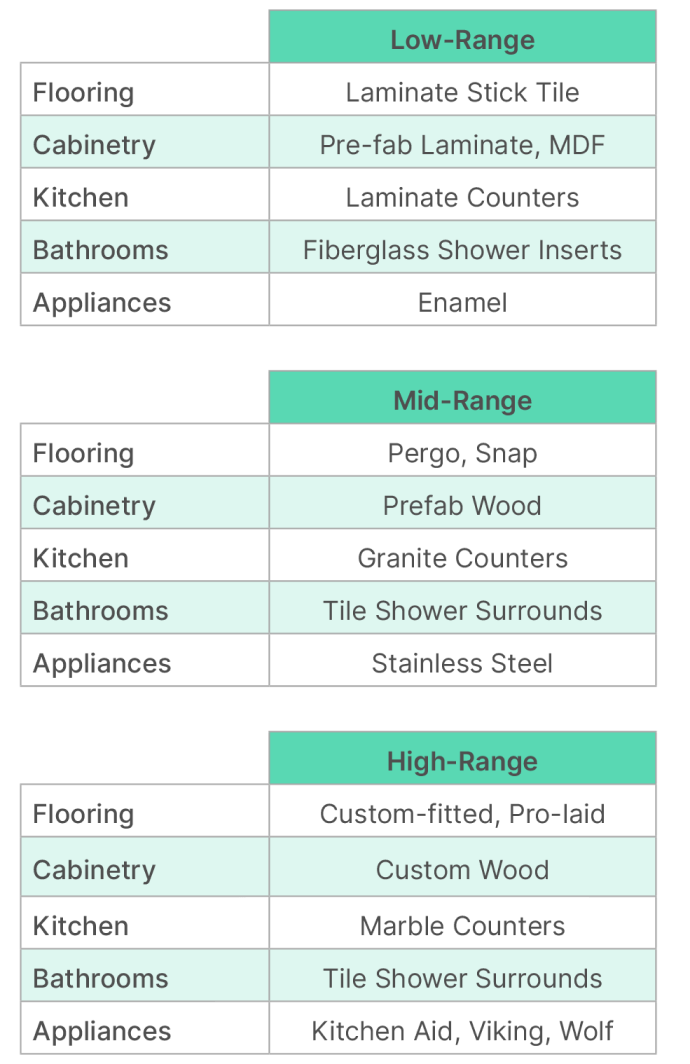Working with Kiavi
Brokers: Submitting a Scope of Work (SOW) in Kiavi's Platform
A Scope of Work (SOW) outlines all planned construction and renovations for a real estate project and is crucial for processing your client’s bridge loan application at Kiavi. A precise and comprehensive SOW facilitates fast loan origination and a smooth Draw Process. This overview will help you assist your clients in preparing a professional SOW using Kiavi’s online portal, detailing the essential requirements and steps involved.
Learn More
Visit our blog, "The Ins and Outs of Your Scope of Work," for even more details about the importance of creating a detailed SOW, its benefits to your client's projects, and its implications for financing. For any additional information regarding submitting an SOW with Kiavi, contact your Kiavi Broker Experience Manager.


